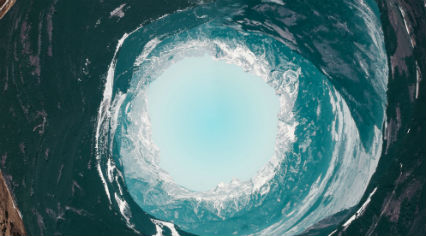Began in August 2016, the cable crosses the Atlantic Ocean 17,000+ feet below the ocean’s surface, connecting Virginia Beach with Bilbao, Spain.
Over 4,000 miles long and weighing nearly 10.25 million pounds, the Marea can transmit up to 160 terabits of data per second. According to Microsoft 160 Tbs is “more than 16,000,000 times faster than the average home internet connection, making it capable of streaming 71 million high-definition videos simultaneously.”
The Marea, which is Spanish for ‘tide,’ is interoperable with a variety of networking equipment. This openness allows the cable to evolve with the technologies in the years to come. In the present, Microsoft lists a wide array of cloud-based services that it aims to enhance with the Marea ranging from Bing and Office 365 to Skype and Xbox Live. For Facebook, Marea will increase its capabilities as the site looks to expand into VR.
Telxius COO Rafael Arranz said in a previous statement that “all of these applications, especially everything that is driven by video, consume a huge amount of bandwidth. So everybody needs to be connected with a high-volume, high-bandwidth infrastructure.”
The motivation for the cable emerged when the Category 5 Hurricane Sandy, knocked out servers and disconnected wireless, internet and home phone service for days. “It was a major disruption,” says Frank Rey, of Microsoft’s Cloud Infrastructure and Operations division. “The entire network between North America and Europe was isolated for a number of hours. For us, the storm brought to light a potential challenge in the consolidation of transatlantic cables that all landed in New York and New Jersey.”
Facebook executives agreed to join forces on the historic cable. “Marea comes at a critical time,” says Brad Smith, president of Microsoft, in a statement. “Submarine cables in the Atlantic already carry 55 percent more data than trans-Pacific routes and 40 percent more data than between the U.S. and Latin America. There is no question that the demand for data flows across the Atlantic will continue to increase and Marea will provide a critical connection for the United States, Spain, and beyond.”
Microsoft announced its completion on Thursday. It should be fully functional by early 2018.









